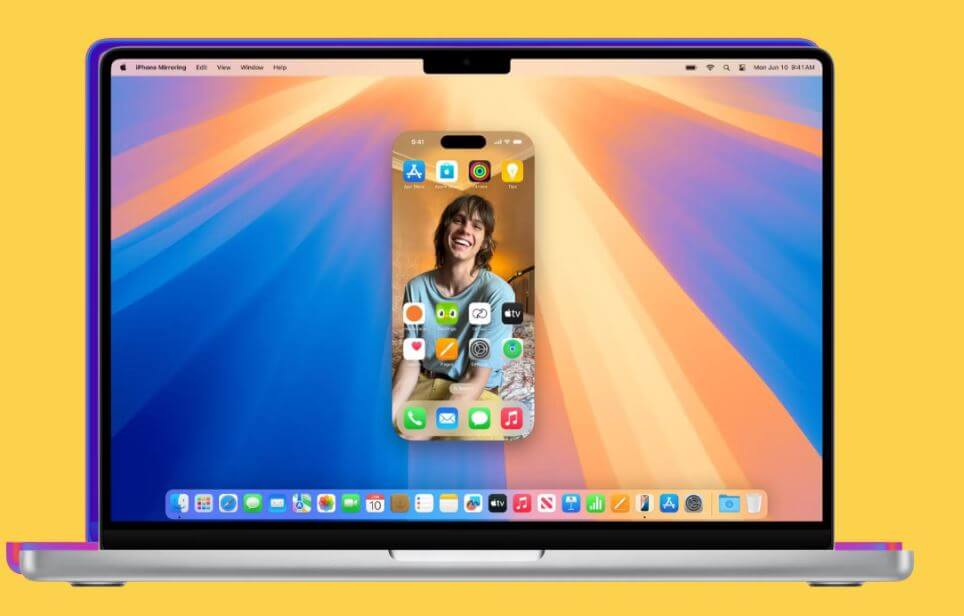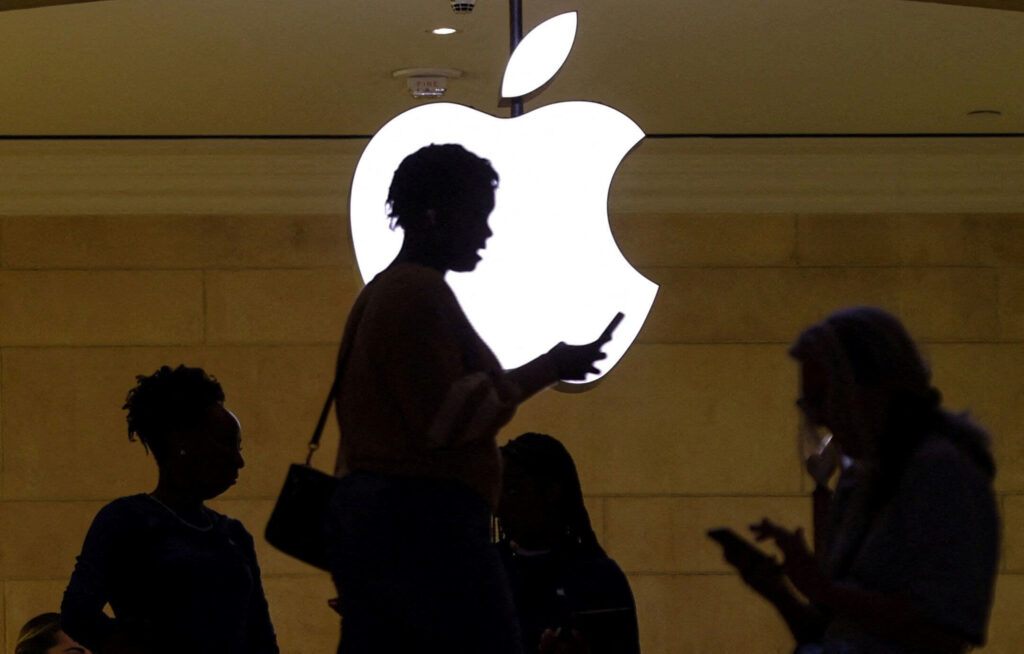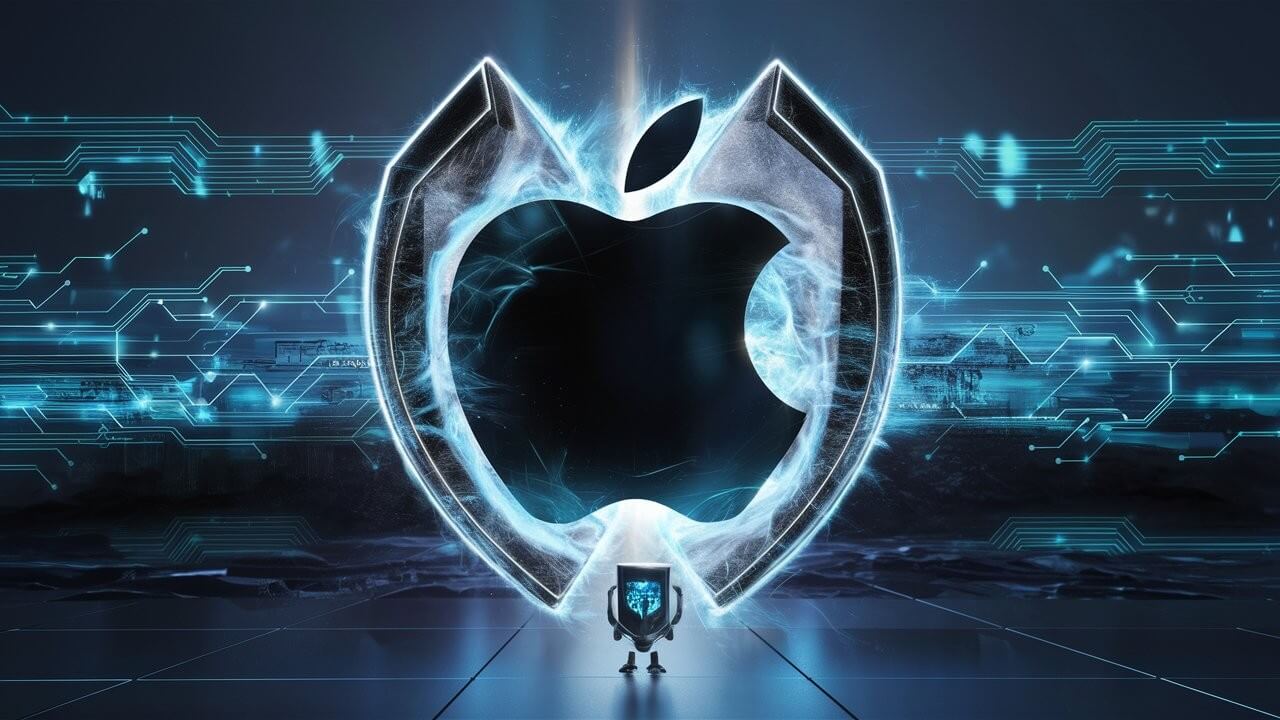Apple’s iPhone Mirroring feature introduced in macOS Sequoia and iOS 18 has raised significant privacy concerns for employees and businesses alike. According to vulnerability management firm Sevco, this feature may expose the personal apps of employees to corporate IT systems, creating potential privacy risks and legal implications. Users with Macs running macOS Sequoia 15 or later, equipped with Apple silicon or the Apple T2 Security Chip, can control their iPhone directly from their Mac when signed in with the same Apple ID.
How iPhone Mirroring Works
iPhone Mirroring feature also allows users to easily work with apps on the iPhone and notifications on the Mac without unlocking the iPhone itself. Apple continues to explain that “iPhone Mirroring enables you to control your iPhone successfully from your Mac without unlocking it, and use your iPhone’s apps and notifications as well.” This design means to help keep the iPhone safe, no matter whether it is reflected. However, Sevco notes that personal applications, when run on this Mac, may take time to be invisible to the corporate IT department.
There is no doubt that with iPhone Mirroring users can work faster and more efficiently since they can operate their iPhones using the Mac. However, the same has contributed to the emergence of privacy risks that should not be overlooked particularly in organizations where data privacy is paramount.
Potential Risks of Using iPhone Mirroring on Corporate Devices
Sevco highlights that iPhone Mirroring on a corporate Mac can cause personal applications to become part of the company’s software inventory. This opens up the possibility of sharing private data with company IT sectors hence making workers have concerns about the privacy of their data. This type of exposure could mean employees are handling personal information while on the social platform and a privacy mishap occurs exposing data. This might include; a VPN app that is used in a prohibited area a dating app that may show one’s orientation or a health-related application that an employee wants to conceal.

Such sensitive applications can pose serious risks if leaked. Particularly in areas with certain or limited civil liberties and strict privacy laws. Failure to know the type of personal data an organization is collecting and storing is likely to lead to legal consequences. The problem raises awareness of an organizational need to distinguish between personal and corporate-owned devices.
Apple’s Response to the Privacy Concerns
Apple acknowledged this issue after receiving a bug report from Sevco. It announced plans for a software update to address the privacy concerns associated with iPhone Mirroring. Sevco states, “If left unresolved, this issue could result in violations of major privacy laws like CCPA, potential legal actions, and federal enforcement.” Apple has committed to resolving the issue soon through an upcoming update, aiming to protect employees’ privacy and reduce risks for organizations.
The upcoming update is expected to address the automatic indexing of personal apps in corporate software inventories, providing a clearer separation between personal data and work-related systems. This commitment from Apple is crucial in maintaining the trust of business users and ensuring that employees’ privacy is not compromised.
Guidance for Employees and Organizations
Until Apple releases a software patch, employees are advised to refrain from using iPhone Mirroring on work computers. Companies should also take proactive steps to inform their employees about this risk. And ensure that IT systems do not inadvertently collect personal information. Identifying and removing such data from corporate databases can help avoid legal liabilities and protect the privacy of their workforce. Sevco further recommends that, once the patch is available, organizations should apply it promptly. And purge any mistakenly collected private data.
Employers must educate their staff about the risks of mixing personal and professional devices, emphasizing. The importance of keeping personal data off corporate networks. By taking these measures, organizations can protect both employees’ privacy and their legal interests.
Broader Implications for Data Privacy and Compliance
The iPhone Mirroring issue highlights a broader challenge in balancing personal privacy with corporate IT practices. However, if personal apps are interfered with in a corporate environment. It may possess compliance issues with privacy laws such as the CCPA.

This might contribute to legal issues loss of credentials for corporations, and penetration fines for violating the data security laws. Sevco emphasizes that such risks could involve employee lawsuits or federal agency investigations. Addressing these issues quickly is crucial for businesses that prioritize employee privacy and want to maintain a secure workplace.
Potential Privacy Breaches with iPhone Mirroring
Sevco has observed that some of its clients have already faced privacy issues due to iPhone Mirroring privacy Issue. In several instances, personal iOS applications were reported as installed on corporate Macs, creating unintended data exposure. This only occurred on devices using macOS Sequoia and iOS 18. When iPhone Mirroring is active, the macOS Spotlight search may index personal iOS apps alongside macOS applications, displaying app names, icons, version details, and more. This could create a serious privacy risk if sensitive apps become visible to corporate IT teams, making it imperative for organizations to take action.
Apple’s Planned Software Update
Based on discussions with Sevco, Apple is expected to release a macOS patch soon. This update will aim to stop the automatic collection of personal data from mirrored iPhones on corporate systems. Once the update is released, companies should promptly apply it to their systems to ensure employee privacy is maintained. Sevco advises businesses to clean up any inadvertently collected data after applying the patch to avoid any legal risks and maintain compliance with privacy laws.
Managing Employee Privacy in the Digital Workplace
The digital workplace has made it challenging to manage employee privacy effectively. Because iPhone Mirroring is such a useful feature, it will always prompt one to rethink. How one’s data can leak into the corporate world to cause privacy violations.

Leaders and managers should take responsibility for educating their personnel by providing proper knowledge regarding data insecurity. And providing different means or ways to protect such acquired or collected data. Challenges such as iPhone Mirroring call for more effective working relationships between technology providers and the in-house IT departments that manage new technologies in enterprise environments.
Conclusion
The iPhone Mirroring privacy Issue in macOS Sequoia and iOS 18 presents significant privacy risks. That could impact employee privacy and corporate compliance. The feature allows convenient control of iPhone apps from Macs but can inadvertently expose personal data to corporate IT systems. Sevco has raised concerns about these risks, prompting Apple to commit to a software update. Organizations must take action to manage these risks by informing employees, avoiding data collection, and applying software patches once available. In this way, the managers of companies will be able to guard the privacy of employees combined with their legal rights in connection with the changes in privacy risks. Whether it is a faucet or a door lock, the use of technology also creates problems for security, and plastic protection. It can then ultimately become an increased danger owing to the trend toward the increased utilization of technology.
FAQs
It allows control of iPhone apps from a Mac.
It may expose personal apps to corporate IT systems, raising concerns.
Inform employees and avoid collecting personal data from mirrored devices.
Release a software update to fix the privacy issue and secure data.
Avoid using iPhone Mirroring on work devices for safety.
Privacy regulations like CCPA and related data protection laws in various regions.
